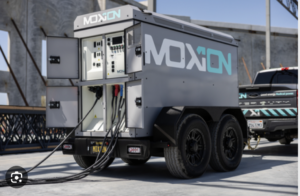In a break from hawking horsepower and leather upholstery, automakers are now trying to show customers they want to be their friend as well.
Honda and and Volkswagen both are unveiling emotional ad campaigns this week that emphasize relationships — how well they know you, their owners, and your needs and foibles.
Both play down the business at hand, selling you a new car.
Honda’s campaign is themed “It all starts with you.” It aims to tug heartstrings as it depicts consumers going through everyday life and making mistakes along the way.
Volkswagen is unleashing a TV and social media package called “Why VW,” with the tagline “It’s not the miles, it’s how you live them. The campaign is for the brand, rather than individual models, and the opening ad shows people, from babies to old folks, laughing and smiling.
Both campaigns are unusual given how automakers have long relied on touting features and attributes of cars, says David Stewart, a marketing professor at Loyola Marymount University in Los Angeles. General Motors showed how emotional ties could build a brand when it launched the Saturn brand more than 20 years ago, but it hasn’t been tried much since, except for Chrysler’s moody Super Bowl ads.
“It has been less common in the auto industry,” Stewart says. “A lot of this has to do with the auto industry still being engineering driven.”
 Of the two campaigns, Honda’s will probably harder to miss, particularly on TV. Honda is mounting the biggest ad blitz in its history in the U.S. to launch the new 2013 Accord flagship sedan.
Of the two campaigns, Honda’s will probably harder to miss, particularly on TV. Honda is mounting the biggest ad blitz in its history in the U.S. to launch the new 2013 Accord flagship sedan.
The ads try to show how Honda understands its customers, serves their needs, and even can bail them out of trouble even when they are boneheads.
In one TV spot, a woman drives off having forgotten her purse is atop the car. The ad shows moments of distraction behind the wheel, and how the Accord’s anti-collision system will help save drivers from themselves.
“We wanted to come up with something emotionally engaging,” says Mike Accavitti, vice president of marketing for American Honda. “It emphasizes the real story of this car.”
A lot of the campaign’s creation involved developing a knowledge of habits that most people take for granted. People, for instance, back their cars out and use the headlights when they are moving the trash cans out to the curb in the evening. “By relating to it, they relate to the brand,” Accavitti says.
Volkswagen, like Honda, is taking advantage of having built a loyal base of customers over the years who have genuine affection for their cars, in VW’s case, going back to the lovable Bug. The TV ad for the Why VW brand campaign showing happy people, in fact, never shows a car. It also links to website whyvw.com where people can share their personal stories about the cars,
“The best way to connect your customers with your brand is to connect with them as people,” says Kevin Mayer, vice president of marketing for Volkswagen of America. “People buy cars emotionally and justify them rationally.”
Ian Beavis, executive vice president of Nielsen Automotive and former marketing chief for Kia and Mitsubishi, says both Honda’a and VW’s approaches in the new ads make sense.
“What they are focusing on is the emotional aspect and the benefits of being part of their club,” Beavis says.


 Moxion and NUE
Moxion and NUE